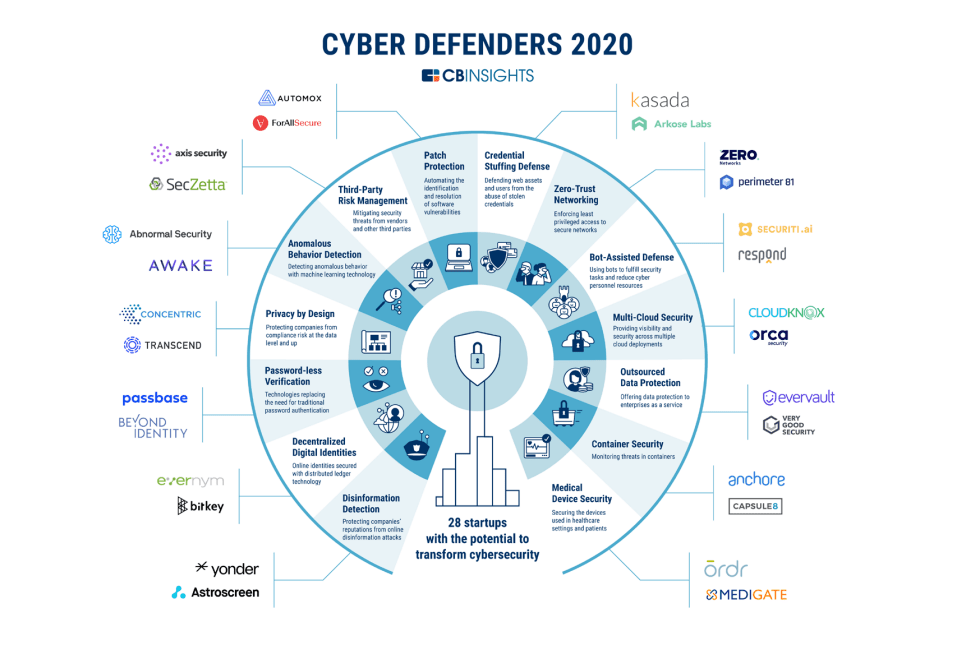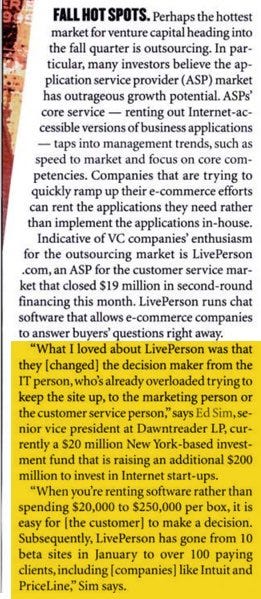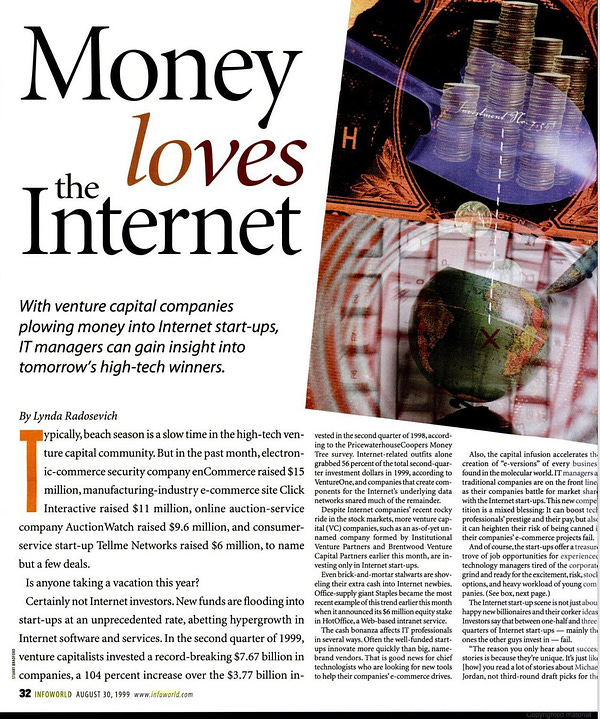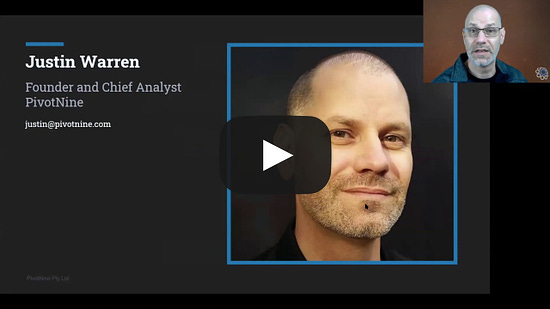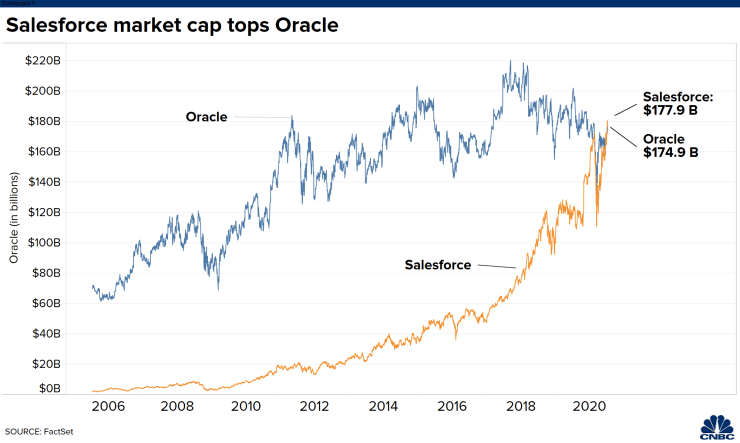As I’ve said before, this enterprise market is about the haves and have nots as security, automation, and cloud continue to be top of mind.
UIPath (automation) becomes the first European decacorn with a $10 billion valuation, Auth0 (security, dev tooling) raises at a $1.9 billion valuation, and Gartner updated its tech forecast with declining overall IT Spend but forecasted double digit growth for cloud between now and 2021.
While SaaS and the cloud are givens today, here’s a tweetstorm from earlier in the week discussing when it wasn’t. Take a look - covers the ASP market, what’s old is new again, concept IPOs, and makes me think what will be a given 20 years from today that we don’t think about now?
As always, be safe, thank you for reading, and please like and share!
Scaling Startups
Founders if you are raising money, take a look at The TechCrunch list which is based on survey data from founders and highlights20 who really leads first checks and are most founder friendly.
TechCrunch further breaks out the 11 VCs who founder love the most, so super honored to be on this list along with my partner @Eliot Durbin. Behind paywall but others include Jerry Chen from Greylock, Josh Kopelman from FirstRound, and Mar Hershenson and Pejman Nozad of Pear.
Here’s the other side of starting a company; Luke Kanies, founder of Puppet, shares his founding story and subsequent burnout - it’s a must read for enterprise founders.
The birth of our kids was more than a turning point for our family. It transformed Puppet. It forced me to acknowledge I could not do it alone. I brought in help before they were born, and by the time they turned one I’d raised a funding round and moved to Portland.
In the four-and-a-half years of bootstrapping, we went from zero to around $250k a year in revenue, and from one to three people. In the seven years after funding, we grew to five hundred people and more than seventy million dollars in revenue. More importantly, we had an impact on thousands of people and thousands of companies.
An absolute goldmine on early stage positioning from our friend Justin Warren of PivotNine. Here’s his presentation from Heavybit outlining the importance and the hows.
Founder priorities - I find for many founders that #4 is hard to do, that is learning to let go for the right key execs you bring to your team. Also, what’s missing and a super key ingredient is building a product people love.
Enterprise Tech
GitLab DevOps 2020 survey is out - some interesting anecdotes…
Still tons of upside ahead for microservices…
The majority of respondents aren’t using Kubernetes and microservices yet, but they are investigating them.
Who owns security?
It depends on who you ask. But, more than 25% of developers feel solely responsible for security, indicating that shifting security left has begun in earnest.
Biggest areas of investment?
Last year, respondents told us they wanted to invest in their DevOps processes. And they did. The top three areas for investment this year: CI, SCM, and test automation.
What is RevOps as opposed to DevOps? Erol Toker from portfolio co Truly.co nails it and how bringing an engineering mindset can unlock huge value. We are seeing tons of internal tooling around all of these areas and also engineers getting embedded into these teams. This is why we are so excited about not only Truly, but also Clay (spreadsheets that fill themselves), PlanGraph (pricing treated as a product), and Cycle (app for product centric teams).
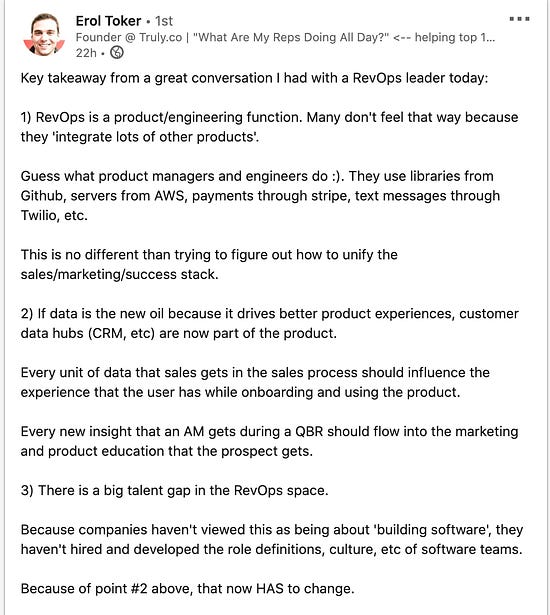
What is true developer friendly? Love this post from Udi Nachmany, head of Cloud Alliances at Snyk (portfolio co).
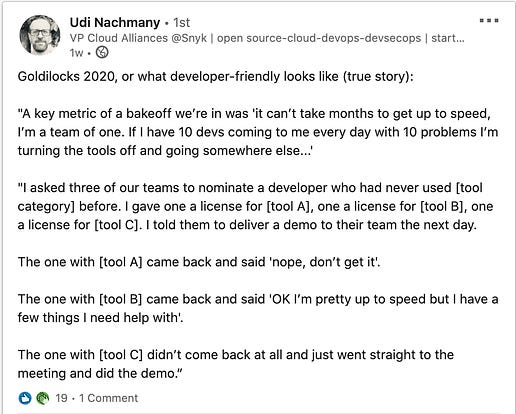
While security is 🔥 but also rife with too many startups, SIEM is still a huge opportunity for someone to do right. If interested, check out Kate’s thread and the commentary.
Added to that, Brian Heemsoth from CVS mentioned this as a burning need of his in our recent CISO security panel.
Medium post and video here:
Developer onboarding is a huge problem and some data points that average tenure of a developer is 12 months and one of main reasons for leaving is not getting up to speed on the codebase. I’m super excited because we just invested in a stealth company trying to solve this real problem. Click through for more on this…
👇🏼💯
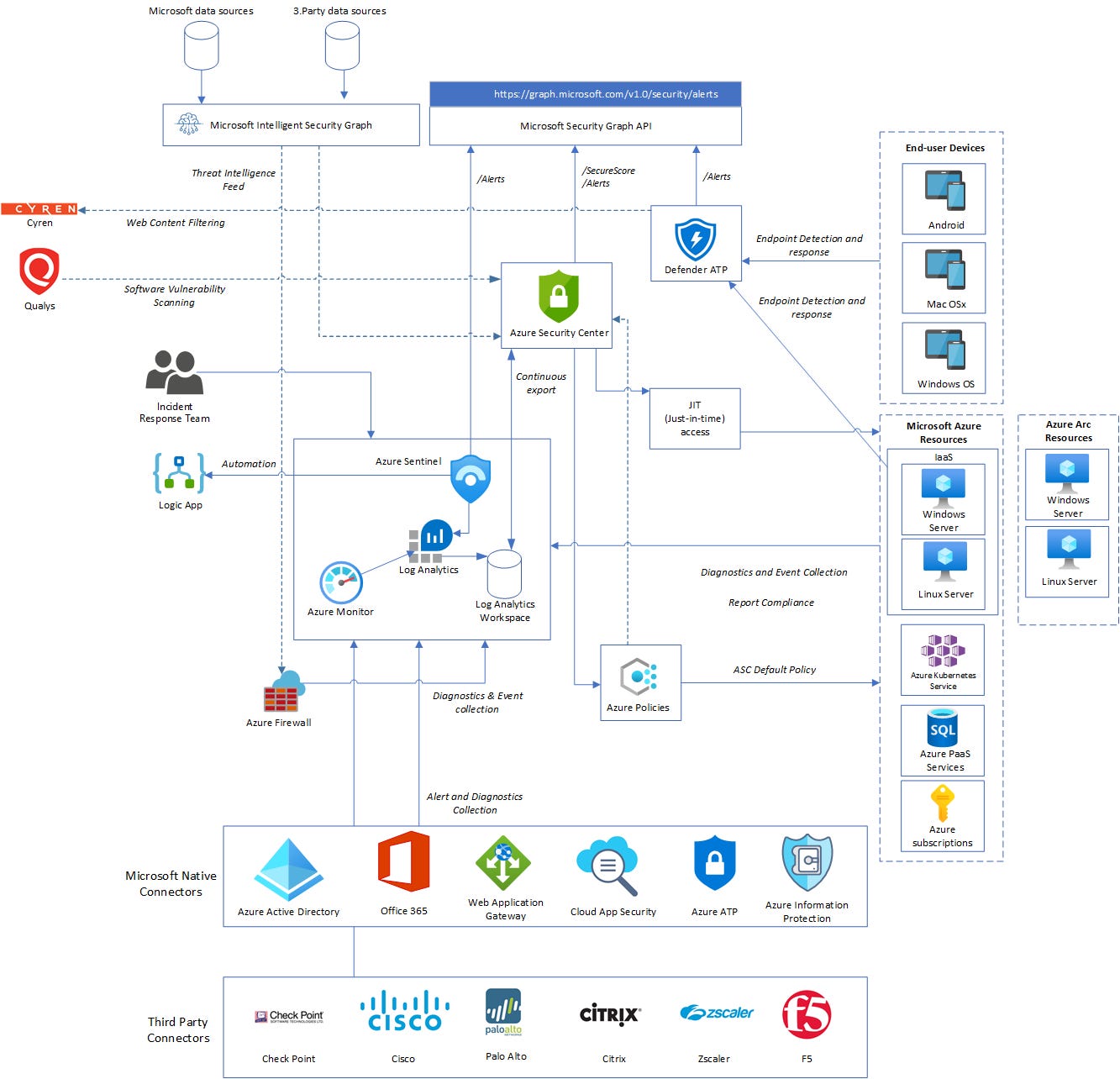
The more we rely on the cloud, the more uptime, security and resiliency matters. In both Slack and Cloudflare’s recent outage was a configuration change!
Details on how we caused an 23 min outage for~50% of @Cloudflare's network today. The root cause was a typo in a router configuration on our private backbone. We've applied safeguards to ensure a mistake like this will not cause problems in the future.

Here’s a great Medium post this past week from Slack engineering detailing its first major outage this past May and why learning from incidents is the way to make sure repeatable mistakes are avoided.
We strive to keep Slack available and reliable, and in this case, we failed. We know that Slack is a critical tool for our users, and that is why we aim to learn as much as we can from every incident, whether customer visible or not.
Europe’s first decacorn in UIPath (from Philippe Botteri, Accel) and automation is 🔥 as revenue is at $400 million, up from $100 million 2 years ago
UiPath says it has automated millions of tasks for over 65% of the Fortune 500. Among its 6,300 customers are Google, Amazon and NASA.
And IBM can’t ignore the space any more as they make their first automation acquisition in WDG Automation.
Previously, IBM provided access to RPA tools via an alliance with vendors such as Automation Anywhere. Once the deal is closed IBM will be able to offer a more tightly integrated RPA alternative that would be more aligned with IBM’s overall artificial intelligence (AI) strategy, says Mike Gilfix, vice president of cloud integration for IBM.
With UIPath at over $10 billion valuation and still private, all of the big companies are now jockeying for a piece of this fast growing market that is somewhat COVID resilient with Microsoft buying Softmotive and IBM buying WDG. Who’s next? ServiceNow? SAP? This is a market the big boys can’t ignore.
I’ve always liked CB Insights Cyber Defenders report, 2020 version is here. Covers disinformation detection, container security, bot-assisted defense and centralized digital identities.
